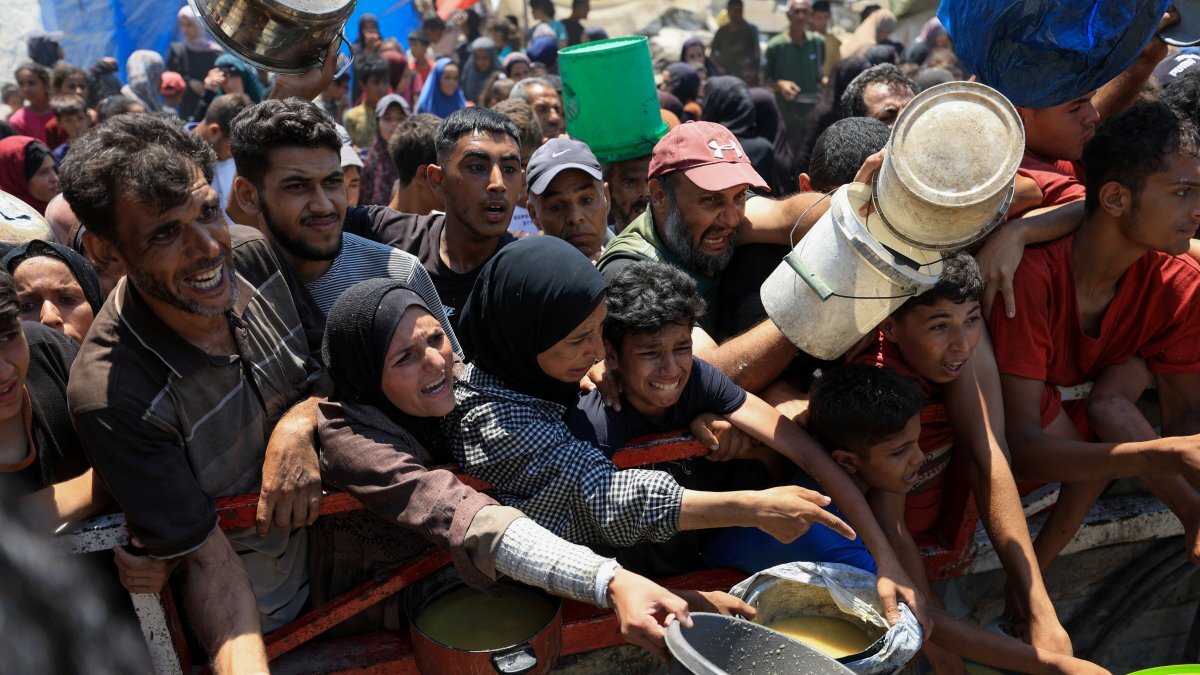Rising Gaza famine sparks calls for Europe to pressure Israel

TEHRAN – European governments are facing increasing pressure to act against Israel as civilian casualties mount and widespread starvation intensifies in Gaza amid the nearly two-year-long conflict in the Palestinian territory.
Since Israel launched its military campaign in Gaza in October 2023, demonstrations have erupted across cities in Europe, with protesters urging their governments to pressure Prime Minister Benjamin Netanyahu’s administration to end the fighting. The situation has worsened as Israel’s near-total siege of Gaza has triggered severe food shortages, fueling calls for urgent European intervention.
Tensions escalated further after the Integrated Food Security Phase Classification (IPC), a global hunger monitoring body collaborating with the United Nations and major aid agencies, declared on August 22 that an “entirely man-made” famine is underway in Gaza City, the Strip’s largest urban area, and its surrounding regions. The IPC warned that deteriorating conditions threaten a sharp rise in deaths across the territory.
However, European responses have been divided. Countries such as Spain and Ireland are advocating for robust pressure on Israel to halt its attacks on Palestinians, while others, including close allies like Germany, prefer limited or no direct action.
On Friday, foreign ministers from Iceland, Ireland, Luxembourg, Norway, Slovenia, and Spain issued a joint statement condemning Israel's planned takeover of Gaza City. Citing the IPC’s famine declaration, the ministers emphasized the urgent need for UN agencies and NGOs to operate in Gaza to alleviate the humanitarian catastrophe.
Amid growing international scrutiny, Slovenia and the Netherlands urged the European Union to adopt stronger measures against Israel, including banning imports from West Bank settlements and suspending arms deals. Slovenia said existing measures—such as barring Israeli ministers from entry and restricting trade—were insufficient, while the Netherlands, joined by Sweden, pushed for EU-level sanctions.
The mounting outcry against Israel’s policies in Gaza has heightened expectations that the EU might take more decisive steps to curb civilian suffering and famine in the enclave. Yet, the effectiveness of European pressure remains uncertain, particularly given Israel’s strategic alignment with the United States, its principal Western ally. Whether Europe can translate growing public and political demands into concrete action will be a critical test of its ability to influence the ongoing crisis.
Leave a Comment